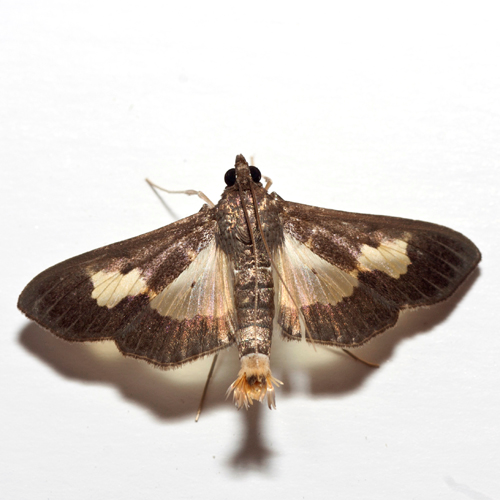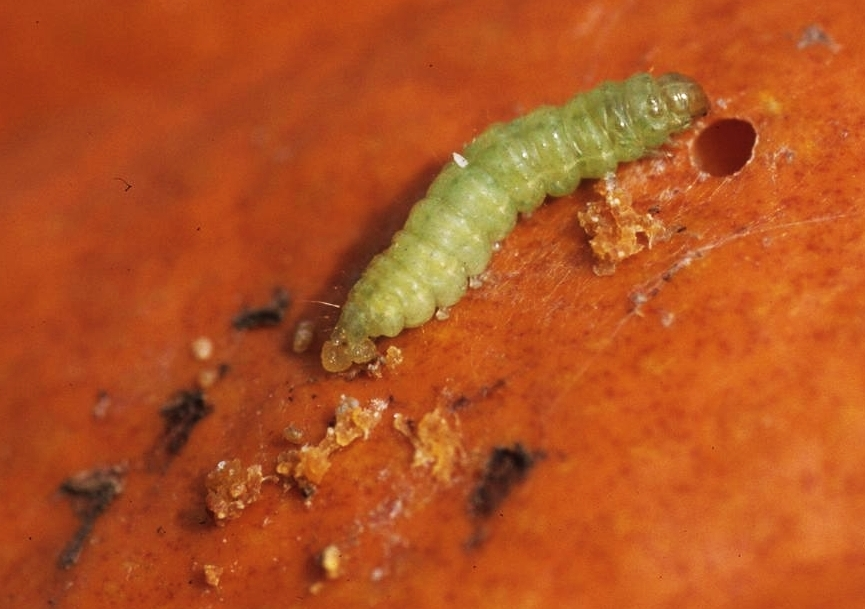This week, my PhD student, Sean Boyle, observed pickleworm holes in our zucchini and squash in Whitethorne, VA near Blacksburg. This is the first that we’ve seen this pest in 2020. If you have noticed this pest in your area, please let me know – email tkuhar@vt.edu. The pickleworm, Diaphania nitidalis (Stoll) is a tropical moth pest of cucurbit crops including pumpkins, squash, and cucumbers (Fig. 1). It is typically a pest in the southern U.S. and does not overwinter in Virginia. The past few years, the pest has made its way northward in late summer on wind and storm fronts. Several pumpkins growers in Virginia have suffered damage from this pest in since 2017 usually following some August summer storms.


Moths fly to flowering pumpkins, squash, or cucumbers and deposit their eggs. A single female moth can lay up to 400 eggs usually on cucurbit flowers. Larvae feed on flowers (Fig. 2) and bore into fruit leaving a characteristic perfectly round hole often with sawdust-like fecal material around it as well.
Management. Pickleworm is very difficult to predict or monitor for as eggs are very tiny, moths fly at night, but are not attracted to lights, and there is no commercially-available pheromone lure. As a result, cucurbit growers in the South often apply insecticides weekly during the fruiting stages until final harvest. Pyrethroid insecticides can be effective at controlling this pest if sprayed in a timely manner (i.e., lambda-cyhalothrin, permethrin, bifenthrin, Baythroid XL, Mustang Max, etc.). Pyrethroids are often used because of their low cost and because they also control squash bugs and cucumber beetles, but they are not IPM compatible and can result in outbreaks of secondary pests such as aphids. Usually two or more sprays of pyrethroids in late summer can cause severe aphid problems leading to honey dew build up on plants. Other insecticides that control pickleworm include: the spinosyn productss, Radiant and Entrust, the diamide insecticides, Coragen and Harvanta, the insect growth regulator (IGR) Intrepid, and the lepidopteran-targeting insecticide Avaunt eVo. All of these products will have less nontarget impacts than pyrethroids and will also control pickleworm.
